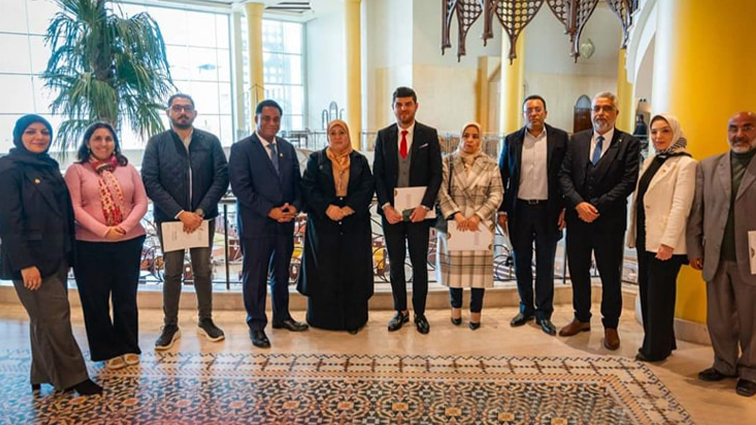In a significant move to bolster cultural and educational ties between Libya and the United States, Public Affairs Officer at the US Embassy Kenyatta, and Deputy Public Affairs Officer Ross held a productive meeting in Tripoli with Deputy Minister of Culture Widad Al-Duwaini and other ministry representatives.
The focus of the discussion was on exploring new avenues for collaboration, in the realms of arts education and cultural exchange programs, underlining a shared commitment to fostering cross-cultural dialogue and enhancing inclusion in Libya.
This meeting marks an important step in the ongoing efforts to bridge cultural gaps, and promote mutual understanding between the two nations. The officials discussed a variety of joint cultural initiatives aimed at enriching the cultural landscape in both countries.
Kenyatta emphasised the importance of cultural exchange, in strengthening bilateral relations. The US delegation expressed enthusiasm for the potential of these initiatives to create new platforms for artistic expression, and educational opportunities for both Libyan and American citizens.
Al-Duwaini highlighted the Libyan government’s commitment to revitalising its cultural sector, and welcomed the prospect of enhanced cooperation with the US. He remarked that cultural exchange is “a powerful tool for fostering understanding and respect among nations.”
The meeting also addressed the importance of inclusion in cultural programs, with a focus on ensuring that diverse voices and perspectives are represented and celebrated. This aligns with broader global efforts to promote diversity, and inclusivity in cultural and educational arenas.
The potential for impactful and transformative cultural partnerships between Libya and the US looks promising, as such initiatives are expected to pave the way for a deeper, more nuanced understanding between the people of both nations.
This development is particularly significant in the context of Libya’s ongoing efforts to rebuild, and stabilise the country. Engaging in cultural and educational exchanges with international partners like the US is seen as a key element in Libya’s broader strategy to foster social cohesion and national unity.
The meeting concluded with a commitment from both sides to continue dialogue, and work towards concrete programs that will materialise the discussed initiatives. As these cultural and educational exchanges take shape, they promise to open new avenues for collaboration and understanding between Libya and the United States.
